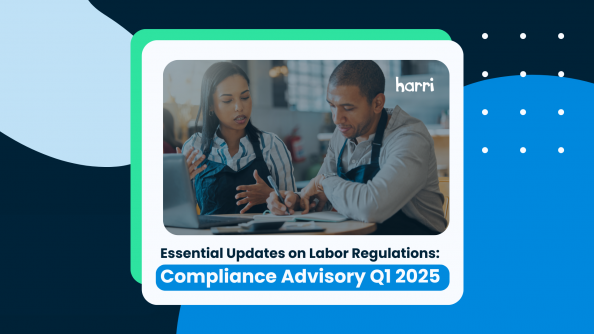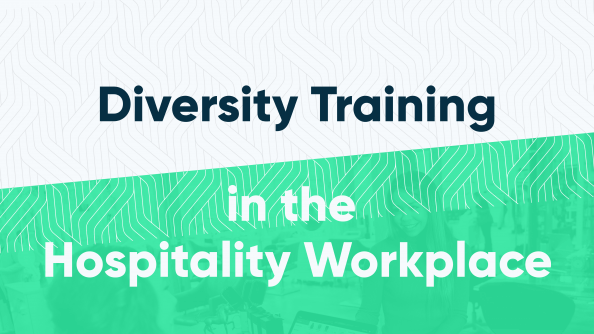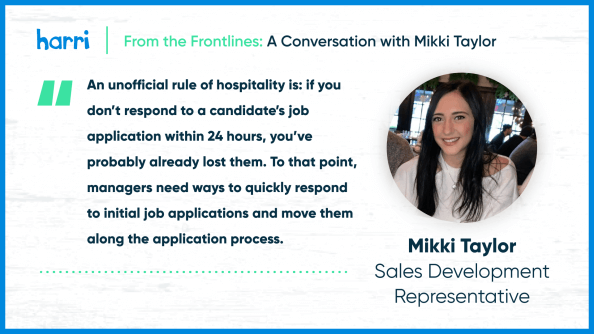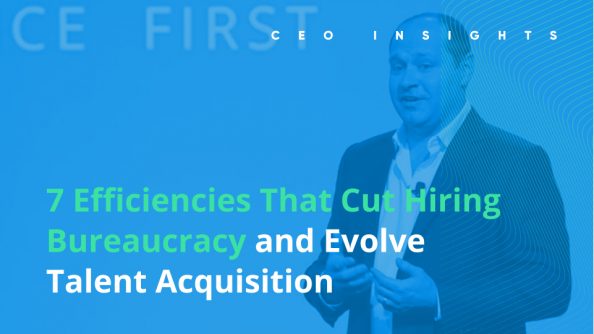3 Best Practices for Interviewing Frontline Workers
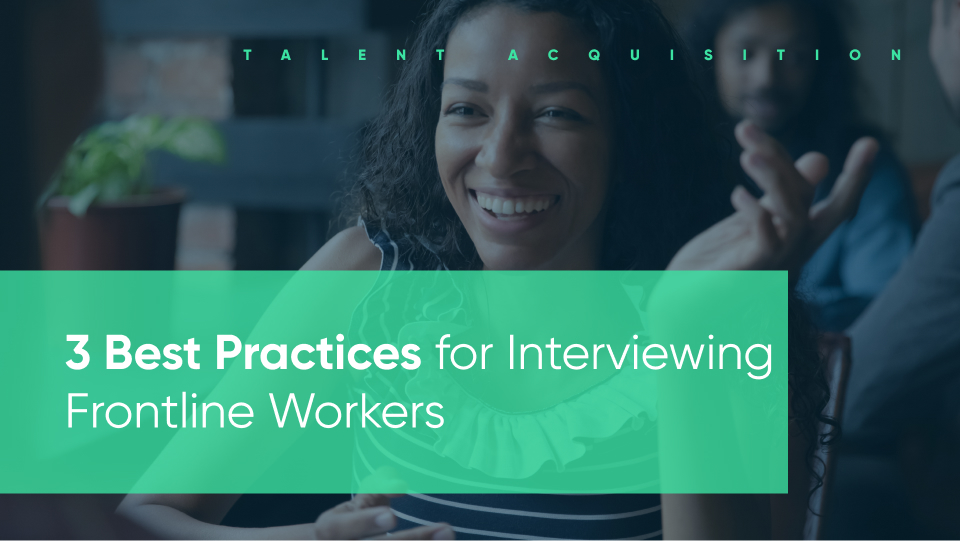
- By Harri Insider Team | September 23, 2021
It’s no secret that recruiting hospitality workers is tough work right now. But as the world of talent acquisition grows increasingly competitive, brands that double down on the basics of hiring are not only hiring faster — they’re retaining those new hires.
Today we’re going to discuss three ways that hospitality operators can optimize their interview management processes to ensure fast, effective hiring.
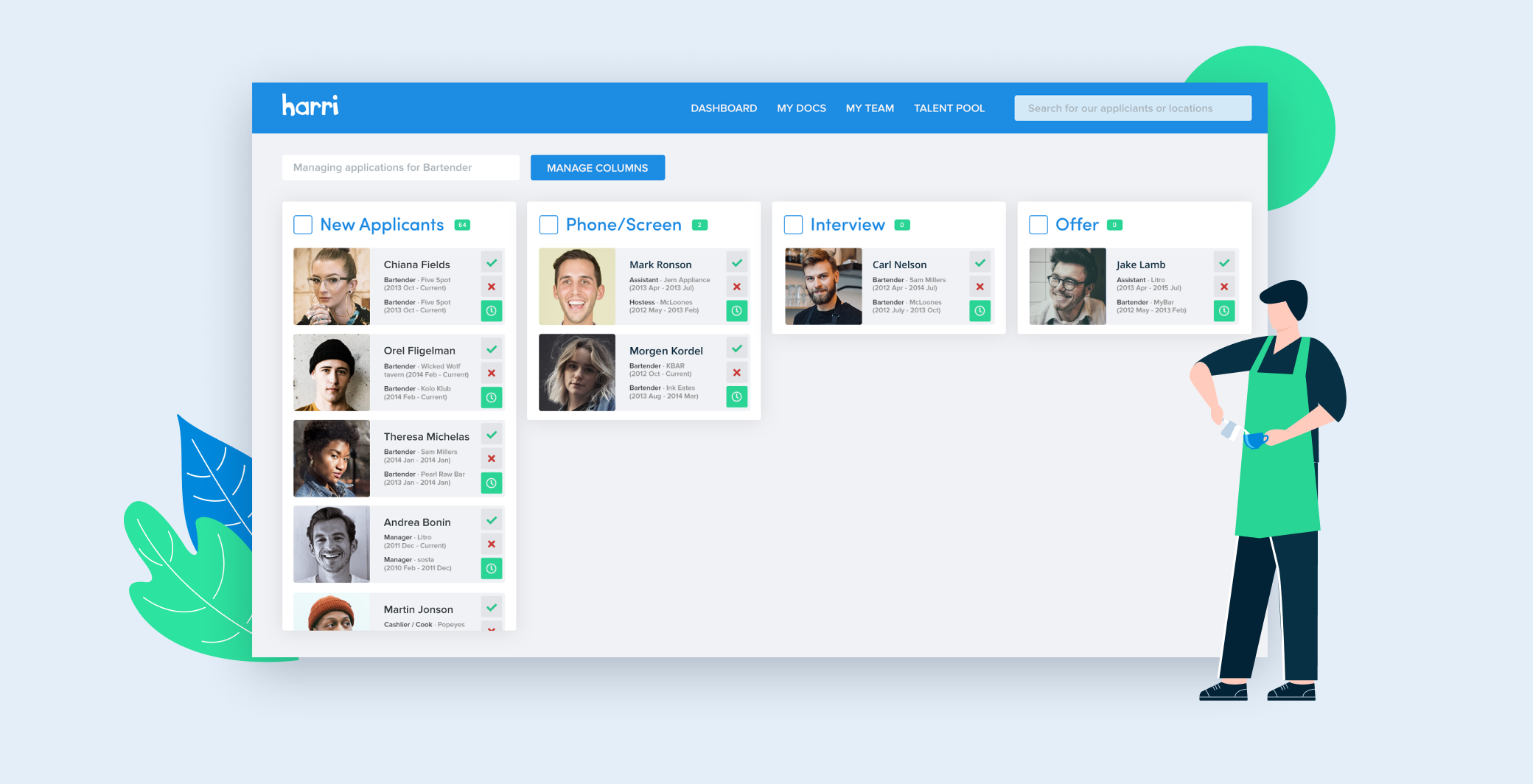
1. Organize your applicants
Smart candidate organization is the best way to set your team up for success, and the right hiring tools can help you build an organized candidate pipeline and ensure an easy hand-off to interviewers.
Tags are one great way to do this, allowing HR teams and managers alike to get a stronger understanding of your current candidate line-up at a glance. Because let’s face it, memorizing candidate details is impossible without a little help when you’re hiring at scale.
Here’s a few examples of how clients use candidate talking in Harri’s interview management system:
By skills
Are you looking for a waiter who has bartending skills? How about a dishwasher with food prepping experience? Associating relevant skills (or areas of interest!) can help you quickly separate the star candidates amongst a sea of applications
By position
Chances are high that your brand, like many others, is hiring for multiple positions. Create role-based tags to organize candidates is incredibly helpful, especially if different roles report to different managers.
Candidate tags can be as broad or as specific as you need them to be. Tag someone as “front of house” and “hostess” or simply leave them tagged under “Bartending team” — the possibilities are limitless.
By brand
Multi-concept organizations might have 17 open waiter positions across four brands. Tagging each job posting for the appropriate brand ensures candidates are delivered to the correct people in your organization to initiate the interview process.
Candidate grouping and notes, such as what you might see in a CRM, are two other great ways to keep a pool of candidates neat and organized.
2. Speed up back end screening processes
By now, we all know that frontline hospitality employees prefer a fast and frictionless screening process. The same goes for your managers responsible for growing your teams.
Despite the labor shortage, there’s going to be plenty of candidates that you’ll need to reject.
Managers shouldn’t spend precious time and energy on candidates who ultimately won’t be a good fit for your business.
How can you make the best use of their time?
Aggregate candidates into one system
How is your candidate pipeline presented to managers? Do they have a giant list to sort through on a spreadsheet, or do they log into multiple job boards to view each platform’s respective candidates?
Aggregating all candidates into one system makes it incredibly easy for managers to access, sort through, and screen candidates across all brands, locations, and job positions.
Faster candidate navigation
When you come across an application that you know off-the-bat that you want to interview, ensuring it’s labeled properly is key. Allowing candidates to slip through the cracks and accidentally end up in the “skip” pile is a worst-case scenario.
When faced with hundreds of applications, managers need a quick way to sort candidates into their respective interview buckets. Utilizing a swipe left/right system or a drag-and-drop Kanban-style list is a great way to improve screening efficiency.
Not only are these familiar formats, but they’re easy to backtrack and retrieve old candidate information in case you decide you want to move forward with a previously passed candidate. After all, maybe they’re a better fit for a different role.
Screening automation
While a certain degree of candidate screening should be completed during the interview, a handful of pre-screening questions can be used to determine if a candidate is a good fit before managers begin sorting through applications.
The right tools can integrate basic questions, such as “How many years of management experience do you have” or “Are you available to work weekday nights?” right into the application process. If answered correctly, a candidate can be automatically moved into the “interview” pile, without adding any additional work onto your manager’s plate.
3. Allow self-service scheduling
Frontline hospitality candidates want instant gratification and flexibility. Managers want to spend less time on administrative hiring tasks. The solution? Self-service scheduling.
It sounds simple, but providing autonomy throughout the hiring process does wonders in terms of keeping candidates engaged.
Slow back-and-forth exchanges with a hiring manager can significantly decrease a candidate’s time-to-hire, especially when reschedules need to happen. And if a manager is swamped with a sudden uptick in day-to-day operations? Candidates will need to wait to learn when their interview will be.
The right interview platform will empower candidates to schedule interview times based on their preferences and the availability of the hiring manager. Once set up, both parties will be notified of the upcoming appointment and provide the options to reschedule if needed.
End-to-end hiring technology is the best solution to optimize your front-end and back-end hiring processes. Connecting interview management tools with a streamlined applicant tracking system only sets your team up for success.
However, there’s another option that’s gaining popularity in hospitality recruiting: conversational AI.
More sophisticated than a chatbot, conversational AI acts as a hiring assistant to automate as much of the interview process as possible. From real-time candidate engagements to automated application management, these tools save time and money on large-scale hiring efforts.
We built Carri, a conversational ambassador, to give managers their time back while also fueling highly effective talent acquisition strategies.
Don’t enter the race for talent unprepared. Learn how Carri can optimize your hiring processes.







